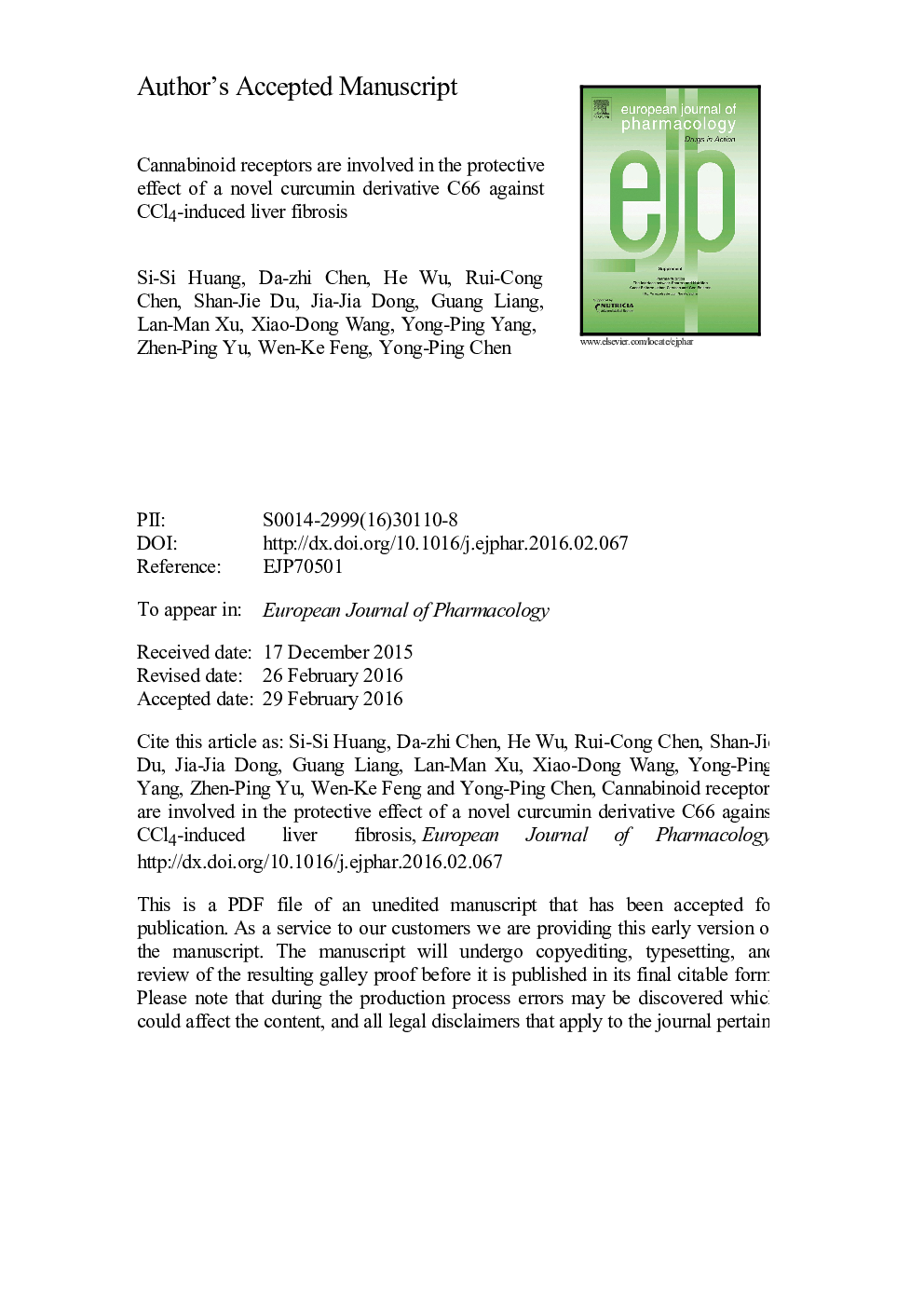| Article ID | Journal | Published Year | Pages | File Type |
|---|---|---|---|---|
| 5826782 | European Journal of Pharmacology | 2016 | 35 Pages |
Abstract
Liver fibrosis is one of the major causes of morbidity and mortality worldwide and lacks efficient therapy. Recent studies suggest the curcumin protects liver from fibrosis. However, curcumin itself is in low bioavailable concentration when administered orally, and the protective mechanism remains poorly understood. The current study aimed to investigate whether a more stable derivative of curcumin, C66, protects against CCl4-inudced liver fibrosis and examine the underlying mechanism involving cannabinoid receptor (CB receptor). At a dose lower than curcumin itself, C66 displayed a superior anti-fibrotic effect. C66 significantly reduced collagen deposition, pro-inflammatory cytokine expression, and liver enzyme activities. Mechanistic study revealed that C66 treatment decreased CCl4-induced cannabinoid receptor 1 (CB1 receptor) expression and increased cannabinoid receptor 2 (CB2 receptor) expression, along with an inhibition of JNK/NF-κB-mediated inflammatory signaling. In conclusion, this curcumin derivative attenuates liver fibrosis likely involving a CB/JNK/NF-κB-mediated pathway.
Related Topics
Life Sciences
Neuroscience
Cellular and Molecular Neuroscience
Authors
Si-Si Huang, Da-zhi Chen, He Wu, Rui-Cong Chen, Shan-Jie Du, Jia-Jia Dong, Guang Liang, Lan-Man Xu, Xiao-Dong Wang, Yong-Ping Yang, Zhen-Ping Yu, Wen-Ke Feng, Yong-Ping Chen,
